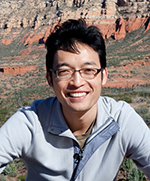A journey through diffusions in control, learning, and inference
Date: 2023/05/12 - 2023/05/12
Academic Seminar: A journey through diffusions in control, learning, and inference
Speaker: Yongxin Chen, Assistant Professor, Georgia Institute of Technology, School of Aerospace Engineering
Time: 10:00 - 11:30, May 12, 2023 (Beijing Time)
Location: CIMC Auditorium (Room 300), Longbin Building
Abstract
Diffusion processes refer to a class of stochastic processes driven by Brownian motion. They have been widely used in various applications, ranging from engineering to science to finance. In this talk, I will discuss my experiences with diffusion and how this powerful tool has shaped our research programs. I will go over several research projects in the area of control, inference, and machine learning, where we have extensively utilized tools from diffusion processes. In particular, I will present our research on three topics: i) covariance control in which we aim to regulate the uncertainties of a dynamic system; ii) Monte Carlo Markov chain sampling for general inference tasks; iii) and diffusion models for generative modeling in machine learning.
Biography
 Yongxin Chen is an Assistant Professor in the School of Aerospace Engineering at Georgia Institute of Technology. He has served on the faculty at Iowa State University (2017-2018). Prior to that, he spent one year (2016-2017) at the Memorial Sloan Kettering Cancer Center (MSKCC) as a postdoctoral fellow. He received his BSc from Shanghai Jiao Tong University in 2011, and Ph.D. from University of Minnesota in 2016, both in Mechanical Engineering. He is an awardee of the George S. Axelby Best Paper Award of IEEE Transactions on Automatic Control in 2017 and the best paper prize of SIAM Journal on Control and Optimization in 2023. He received the NSF Faculty Early Career Development Program (CAREER) Award in 2020, the Simons-Berkeley Research Fellowship in 2021, the A. V. `Bal’ Balakrishnan Award in 2021, and the Donald P. Eckman Award for outstanding young engineer in the field of automatic control in 2022. His current research interests are in the areas of control theory, optimization, machine learning, and robotics. He enjoys developing new algorithms and theoretical frameworks for real world applications.
Yongxin Chen is an Assistant Professor in the School of Aerospace Engineering at Georgia Institute of Technology. He has served on the faculty at Iowa State University (2017-2018). Prior to that, he spent one year (2016-2017) at the Memorial Sloan Kettering Cancer Center (MSKCC) as a postdoctoral fellow. He received his BSc from Shanghai Jiao Tong University in 2011, and Ph.D. from University of Minnesota in 2016, both in Mechanical Engineering. He is an awardee of the George S. Axelby Best Paper Award of IEEE Transactions on Automatic Control in 2017 and the best paper prize of SIAM Journal on Control and Optimization in 2023. He received the NSF Faculty Early Career Development Program (CAREER) Award in 2020, the Simons-Berkeley Research Fellowship in 2021, the A. V. `Bal’ Balakrishnan Award in 2021, and the Donald P. Eckman Award for outstanding young engineer in the field of automatic control in 2022. His current research interests are in the areas of control theory, optimization, machine learning, and robotics. He enjoys developing new algorithms and theoretical frameworks for real world applications.
